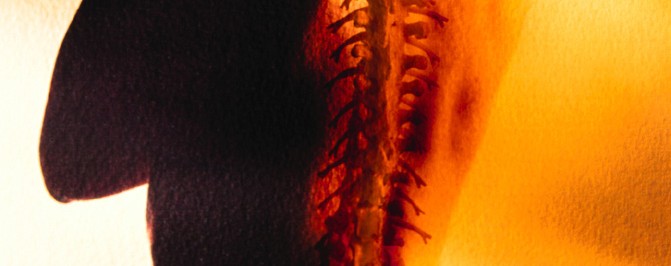
- Birth Injury Errors
- Brain Damage/Brain Injuries
- Cancer
- Dialysis Mistakes
- Eye Cases
- Gastroenterology
- Heart Disease and Attacks
- Infections and Infectious Diseases
- Internal Medicine/Primary Care
- Medication Errors
- Pulmonary and Respiratory Diseases
- Radiology/Diagnostic Testing
- Retained Instrument/Sponge Cases
- Skeletal Injuries
- Spinal Cord Injuries
- Strokes
- Surgery and Procedures
- Traumatic Injuries
- Urology
- Vascular Injuries and Diseases
Spinal Cord Injuries
Each year about 8,000 new spinal cord injuries are diagnosed. More than 80 percent of them are in men between the ages of 16 and 30. As many as 450,000 Americans live with spinal cord injuries. Car and motorcycle crashes, gunshot and knife wounds, and falls and sports injuries are the most common causes of damage to the spinal cord, the bundle of nerves that runs through the backbone. This network transmits sensation and controls movement throughout the body. Damage to it can cause loss of mobility and feeling below the injured area, and can be fatal in serious injuries.
Nearly half of the estimated 7,800 nonfatal spinal cord injuries that occur each year are the result of motor vehicle accidents. Spinal injury at the neck level may impair a person’s breathing and paralyze arms, legs and trunk (quadriplegia). Injury lower in the spine may cause weakness and loss of movement or feeling only in the legs and lower parts of the body (paraplegia). A severed spinal cord cannot be repaired. In less severe cases, recovery depends of the extent of the damage.
Symptoms of spinal cord damage may include weakness, poor coordination, paralysis, numbness, tingling, loss of bowel or bladder control, pain. Any trauma that pulls, compresses, pushes sideways or cuts your spinal cord may cause spinal cord injury. Spinal cord injuries can also be caused by blood clots, abscesses, tumors, polio, spina bifida or Friedrich’s Ataxia, an inherited disorder.
If spinal cord injury is suspected, a CT scan, MRI or myelogram may be used as diagnostic tools. Immediate medical treatment should focus on stabilizing the spine and aggressive treatment with corticosteroid drugs to limit damage. Surgery may also be necessary to stabilize the spine or fuse the spine with metal plates or pins. Once the initial injury heals, functional improvements may continue for at least six months. After that time period, any remaining disability is likely to be permanent.
Long-term treatment involves an intense program of rehabilitation therapy. Continuing treatment might include nutritional management, occupational therapy, psychological counseling and careful monitoring by physicians.





